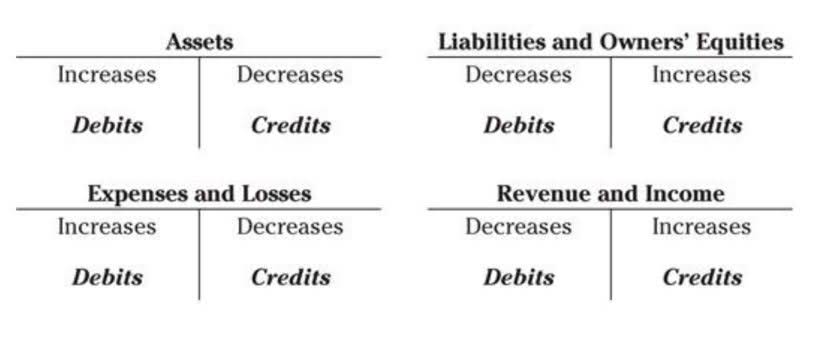Future of Accounting Trends, Technology & Industry Insights

This shift improves efficiency, reduces errors, and opens new opportunities for accountants to add value. It automates the feedback loop for improved anomaly detection and reduction of false positives over time. We empower accounting teams to work more efficiently, accurately, and collaboratively, enabling them to add greater value to their organizations’ accounting processes. To support and enhance sustainability reporting and ESG factors, accountants need to be proactive and innovative. They need to measure and report the environmental and social impacts and performance of their clients and their own organizations. Cybersecurity is essential for financial reporting, as it ensures the accuracy, reliability, and integrity of financial data and statements.
- Environmental auditing identifies ways clients impact the environment, then integrates environmental cost with financial cost to find solutions that work for both metrics.
- There are emerging tech advancements that have the potential to radically change the industry, for example, blockchain technology.
- That’s where Qbox comes in, offering an all-in-one collaboration solution tailored for accounting firms.
- This accessibility also means that financial data is always up-to-date and readily available, improving overall financial management.
- It’s time to stop being seen only as a “tax preparer” and instead become a business partner.
- With the rise of generative AI platforms like ChatGPT, automation has gotten a bad wrap over the last few years, but it is integral when it comes to accounting.
Green Tax Incentives
With more big data available, making the information tell a story will improve client understanding. This resource from Jason and Chad is designed to help you with automation ideas, including using AI, and no-code apps and tools. You can save time and money by building tech to suit your exact needs or connect critical apps without employing a developer. Being able to communicate the actions you’re taking and the reasons behind them gives your clients reassurance they’re on the right path. Research conducted by Harvard University found that 85% of job success came from having well‐developed soft skills, and only 15% came from technical skills (hard skills).
- Leveraging real-time data allows businesses to employ predictive analytics to forecast future financial trends accurately.
- AI-powered software can automate routine tasks such as data entry, invoice processing, and transaction categorization, reducing the risk of human error and increasing efficiency.
- They are at the forefront by adopting advanced technologies, providing cost-effective solutions, and offering specialized expertise in AI, blockchain, and ESG reporting.
- Leveraging Search Engine Optimization (SEO) Increasing Visibility in Search Results SEO involves optimizing your website and content to rank higher in search engine results.
C. Benefits of Data Analytics and Its Impact on Decision-Making
The technology offers an immutable, transparent ledger that can streamline auditing processes and reduce the risk of fraud. Blockchain is especially useful is bookkeeping in demand for maintaining accurate financial records in industries such as supply chain management and real estate. Environmental protection awareness is growing in the business world, making sustainability reporting a high-priority accounting industry trend in 2025.

Changes in Tax Laws and Compliance

Mobile devices have become Liability Accounts an essential tool for bookkeepers, enabling on-the-go access to financial data and accounting software. Mobile accounting apps like Zoho Books, FreshBooks, and QuickBooks Mobile allow bookkeepers to manage finances, track expenses, and collaborate with clients from anywhere. As mobile technology advances, we can expect even more sophisticated features and enhanced user experiences.
The Evolution of Bookkeeping: A Story of Transformation
Real-time analytics provide immediate insights into cash flow, enabling businesses to monitor inflows https://www.bookstime.com/ and outflows continuously. This continuous monitoring helps maintain optimal cash levels, plan for expenditures, and avoid liquidity issues. Adequate cash flow management is vital for business sustainability, especially in volatile economic conditions. Access to real-time data empowers management to make decisions based on the most current information available.

Cloud-Based Solutions for Real-Time Collaboration

This has led to an increased demand for accountants, escalating salaries, and intensifying competition for skilled professionals. CPA auditors will need to adapt and create new methods to extract and verify audit data from blockchain systems while considering the risks. This technology also presents opportunities for streamlining audits, leveraging real-time data, reducing manual tasks, and enhancing quality and efficiency. Accounting firms are adopting these tools at an increasing rate, with 24% of top-performing client advisory services (CAS) practices already using AI.

How to Prep Your Practice for the Future of Accounting
- These shifts not only reflect changes in technology but also in the global business environment, with increasingly complex regulations, a greater focus on transparency, and the rise of the gig economy.
- By analyzing large datasets, accountants can provide actionable insights to their clients.
- The pandemic propelled the world into a situation where almost any job was done remotely.
- Meanwhile, adopting innovative AI tools can simplify your workload, improve accuracy, and drive business growth.
- Beyond traditional bookkeeping and tax compliance, more and more accounting firms will expand their Client Advisory Services (CAS) in 2025.
As businesses prepare for 2025, accounting is undergoing significant transformations. A recent survey revealed that 67% of firms plan to increase their investment in technology over the next two years, highlighting the industry’s shift towards automation and real- time data analytics. In light of many of these accounting industry trends, firms will be required to refresh their skills and knowledge throughout 2025. This might involve developing in-house training on new technologies or consulting with environmental experts to create practical sustainability reporting standards.
